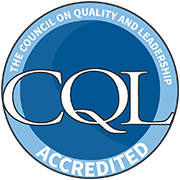ISSUE
A variety of barriers to ensuring that people with IDD receive the LTSS required to live their fullest life in communities of their choice continue to exist. These include:
- Insufficient Medicaid funding;
- Institutional bias in the Medicaid program;
- Continued and worsening crisis of unmet need; and
- Persistent and worsening workforce crisis.
Insufficient Medicaid Funding
Medicaid has been the major funding source for all LTSS for people with IDD for decades. Medicaid is also under constant political threat, creating anxiety, confusion, and compromising the well-being of people with IDD and their families.
The persistent lack of a system of comprehensive community LTSS is a crisis requiring immediate solutions. Individuals and families are forced to navigate a patchwork of systems of supports and services that are complex and frequently uncoordinated; are limited and often diminishing in scope and relevance; and, are difficult to access and offer no clear path to assistance. Medicaid is means-tested, is not portable across state lines, differs—often dramatically—from state to state, and does not meet the demand for community-based LTSS for people with IDD of all ages.
Many individuals and families experience extraordinary hardships due to a lack of services and supports. Many people with IDD are living at home with a caregiver of retirement age. Family caregivers play a critical role in providing uncompensated supports and services. Many family caregivers are forced to leave employment to provide services that their family member may need because that is their only option. Relying on families to provide support cannot be a substitute for creating a systemic solution to ensure that everyone with IDD who needs LTSS receives them.
Institutional Bias of Medicaid
Making choices and self-directing one’s life with the assistance they may need should be an expectation for all people. However, most individuals with IDD are not given opportunities or supports to make and/or execute choices and decisions, or their choices have been ignored. It is important that self-direction includes the ability to select and dismiss the people who provide supports and services, and to have control over funding. Ensuring the system of LTSS is self-determined and person-centered and directed is critical to having a system of individualized supports for people with IDD. Too often decisions about supports and services are based on availability and cost, not on the person’s choices made independently of the self-interests of the funder and/or service provider. Many people either accept supports and services that are available but inappropriate and/or inadequate, or receive no supports at all.
While most LTSS for people with IDD are community-based, a Medicaid institutional bias, based in the antiquated medical model of care, continues to exist. This means that institutional services (such as nursing homes) are mandatory under federal law, while community-based supports and services are optional. In addition, in many states, existing Medicaid services fall short of meeting the full needs of people with IDD, requiring continued advocacy to ensure ease of access to necessary, community-based services and supports.
To become or remain eligible for vital Medicaid-funded LTSS, most people seeking services are forced to impoverish themselves and remain poor for a lifetime. Program changes designed primarily to reduce costs rather than improve or expand supports and services are emerging in greater numbers of managed care state LTSS systems. This shift has, in a number of states, resulted in greater barriers to accessing LTSS.
Continuing and Worsening Crisis of Unmet Need
People waiting for LTSS is unacceptable. Individuals with IDD remain on waiting lists for years—in some states for a decade or more—after requesting and being determined eligible for necessary supports and services. If ongoing supports and services are not available to young adults with IDD transitioning out of the education system, educational gains are lost, as are opportunities to launch careers and achieve independence.
People with disabilities often must experience the death of a parent, a medical emergency, or other tragic event to obtain the supports they need. They are thus thrust into a new situation without planning at a time of crisis.
As people with IDD continue to seek supports in their communities, access to affordable housing in safe neighborhoods has emerged as an urgent need. Because Medicaid eligibility for individuals with IDD often requires them to impoverish themselves, even generally available affordable housing programs are frequently inaccessible to them.
Direct Support Professional Workforce Crisis
The quality and effectiveness of LTSS for people with IDD depends upon qualified providers of supports and services with adequate skills and training. Inadequate compensation hampers both recruitment and retention of direct support professionals (DSP). Insufficient funding to support livable wages for DSPs, and for training of DSPs and their supervisors, negatively impacts the quality of supports available to people with IDD, as well as the success that individuals have in living the life they choose in the community.
POSITION
A comprehensive system of LTSS must include the following:
- An LTSS system that is sustainable and enables all eligible individuals to obtain LTSS whenever needed;
- A system that includes private and public funding mechanisms for LTSS, as a shared, societal responsibility;
- Elimination of the need for individuals or their families to impoverish themselves to receive supports and services;
- Services which are portable and allow people who move from one state or political jurisdiction to another to receive uninterrupted, self-directed supports;
- Medicaid as a viable funding option for individuals who need LTSS and have no or limited access to private insurance options;
- Medicaid buy-in options that are available in all states to allow people to preserve their eligibility for Medicaid-financed supports while encouraging careers, savings, and wealth-building;
- Medicaid programs that enable people to participate fully in their communities, experience a quality of life they define, and achieve economic security and personal independence;
- Medicaid funds that are controlled, to the fullest extent possible, by the person;
- Medicaid funding that is redirected from institutional care to person-centered home and community-based supports that are delivered in natural community environments;
- Improvements to Medicaid to ensure access to self-directed and determined LTSS, consistently deliver better outcomes for more people with IDD, and eliminate waiting; and
- Medicaid service delivery system redesign that is transparent and involves meaningful input of all stakeholders.
Self-Direction
Access to adequate and appropriate supports and services needed to live in the community is a basic human right. To achieve this:
- Individuals must design and direct their own services, to the fullest extent they wish and with the assistance they want;
- Services must be person-centered and based on the unique needs and desires of the individual, accompanied by measured progress toward person-centered outcomes to which the person aspires;
- Individuals with IDD who wish to employ DSPs must have access to timely and relevant information, technical assistance, and training;
- Services must be delivered promptly to meet individual needs and desires in the most integrated setting, with flexible funding to meet changing circumstances; and
- Outcome measures, defined in substantial part by the person, and outcomes consistent with state-defined value based reimbursement systems should be used to measure the individual and systems outcomes of LTSS in every state.
Continuing and Worsening Crisis of Unmet Need
- Individuals who are eligible for and want LTSS should not have to wait to receive services;
- Public systems must actively reach out to individuals and to families with un- and under-met needs to make them aware of the process for obtaining LTSS and must maintain transparency until waiting is eliminated;
- People must receive crucial supports that assist them while they wait for comprehensive community supports and services; and
- Until waiting is eliminated, states must develop systems to prioritize delivery of services to individuals who are waiting for services on the waiting list to ensure that those experiencing emergencies (loss of caregiver, imminent threat of institutionalization) receive person-centered and self-directed supports and services immediately.
Direct Support Professionals Workforce Crisis
- System funding must provide for living wages and benefits to DSPs;
- Wages, benefits, and professional development opportunities remain consistently insufficient and must improve to attract and retain the workforce needed to fully support people living in the community;
- Competency-based training must be available to DSPs that covers the essential knowledge, ethical principles and practices, and skills necessary to provide direct support;
- National, state, and local private and public entities must engage in policy initiatives to recruit, train, and retain a high quality DSP workforce;Federal and state quality assurance programs must incentivize DSP retention and competence as part of licensure, in order to recognize positive performance and to direct assistance to those programs with unacceptable performance; and
- States must utilize a Nation-wide system for criminal and related background checks, including a system for tracking people for whom abuse, neglect, and exploitation charges have been substantiated, for all public and private DSPs working in the state.
Rev’d 2020
Joint statement with the American Association on Intellectual and Developmental Disabilities (AAIDD).
1Intellectual Disability (ID) is a lifelong condition where significant limitations in both intellectual functioning and adaptive behavior emerge during the developmental period (before adulthood).
Developmental Disabilities (DD), first defined in 1975 federal legislation now known as “The DD Act”, are a group of lifelong conditions that emerge during the developmental period and result in some level of functional limitation in learning, language, communication, cognition, behavior, socialization, or mobility. The most common DD conditions are intellectual disability, Down syndrome, autism, cerebral palsy, spina bifida, fetal alcohol syndrome, and fragile X syndrome.
The acronym “IDD” is used to describe a group that includes either people with both ID and another DD or a group that includes people with ID or another DD. The supports that people with IDD need to meet their goals vary in intensity from intermittent to pervasive.












